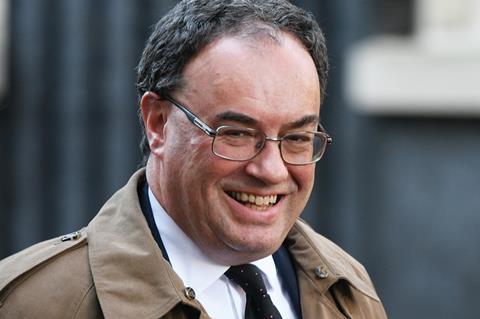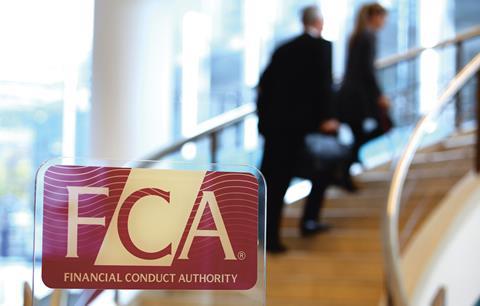No one talks about ‘light touch’ regulation in financial services these days. But is the FCA struggling to find the right balance between intervention and fostering innovation? Grania Langdon-Down reports
THE LOW DOWN
When investments turn sour and thousands of investors lose millions of pounds it is inevitable that the spotlight turns on the regulator. For the Financial Conduct Authority, that has meant a relentless barrage of criticism from politicians, the media and consumers for failing to pick up on warning signs quickly enough. But how does that play out across the watchdog’s broader role in responding to new regulatory pressures while fostering innovation? For practitioners, the FCA’s record is mixed. They are concerned that its move to ramp up enforcement investigations means these are taking longer, leaving clients in limbo. But they also praise its Brexit preparations. Yet, as the FCA taps into City expertise, are critics right to say the regulator is too ‘cosy’ with private sector advisers?
The Financial Conduct Authority (FCA) has come under sustained fire this year. Headlines in the business press have been dominated by London Capital & Finance (LC&F), where the FCA intervened five times before its collapse with 11,500 consumers losing £237m; and the Woodford Equity Income Fund, where stresses were being reported before the fund was suspended.
Banking scandals dating back to the 2008 financial crash still haunt the authority because its enforcement action, based on the rules in place at the time, has not met demands for more individual accountability.
But where should the regulatory line be drawn? Now individuals have greater financial freedom over investments and pensions, how much responsibility should they take if things go wrong? The UK has one of the most generous protection schemes of any country but how wide should that protection go?
Is the current ‘perimeter’ of regulation properly drawn or should it be widened to include new areas such as SME lending, and crypto assets and currencies such as Facebook’s proposed Libra?
Chris Ninan, a partner at Herbert Smith Freehills, specialises in contentious financial services regulatory work. He says the FCA’s record is mixed: ‘But I have sympathy for those working there, in that they are given a set of rules and priorities by parliament and they do their best to achieve them. The pasting they get in the press is somewhat unfair, because these cases are a small part of what they do as an organisation.’
If you are looking at output in terms of resolutions, the FCA’s bite needs to be as significant as its bark
Barry Vitou, Greenberg Traurig
Farhaz Khan, a barrister at 3 Verulam Buildings, is secretary of the Financial Services Lawyers Association (FSLA). Khan launched the FSLA 12 years ago with colleagues at what was then the Financial Services Authority (FSA), the bar and private practice. The association has grown to 2,000 members and is a ‘safe space’ for stakeholders to debate live issues, whatever side of the fence they are on.
‘People are quick to criticise when there is a crisis with a particular firm and it is pretty routine for the Treasury Select Committee (TSC) and MPs to question why the FCA didn’t pick up any red flags,’ he says.
‘But the Woodford Fund, for example, is a small corner of market activity so it would be unfair to say it is representative of broader failure… [the FCA] has been a successful regulator and a thought leader in trying to pre-empt risks in areas such as crypto assets.’
Alan Hughes heads Foot Anstey’s retail financial services team. ‘What people find frustrating ,’ he says, ‘is when concerns are reported, whether anonymously or by a whistleblower, and nothing happens. Then, several years later, there is a big scandal.
‘The authority isn’t meant to operate a “no fail” regime – you can’t eliminate all risk or no one would ever do anything. But by the same token you have to intervene quickly and effectively where you have enough information.’
The FCA is funded by £614m in fees raised from the firms it regulates. With nearly 4,000 staff and operating costs of £588m, it now regulates 150,000 individuals and 60,000 firms, including 3,200 investment funds.
It is constantly being tasked with new roles. The government recently announced that the FCA is to establish a new crypto assets regime, which will create one of the most comprehensive global responses to the use of crypto assets in illicit activity.
The FCA is not ducking criticism. Chief executive Andrew Bailey admitted at a recent TSC hearing that interventions in LC&F had not been ‘sufficiently aggressive’.

He has asked the former appeal judge Dame Elizabeth Gloster to scrutinise the authority’s supervision of LC&F alongside her inquiry into the firm’s collapse. The FCA has said that senior directors’ performance bonuses next year could be affected, depending on the outcome of her review.
Bailey denied there is ‘any sense of inertia’ at the FCA. The authority now had more than 650 open investigations, compared with 250 when he took over in 2016.
What is clearly using up resources are the FCA’s preparations for Brexit. Working with the Treasury and Bank of England, it has created a temporary permissions regime and introduced a financial services contracts regime for EEA firms currently operating in the UK with passports.
Since applications opened in January, more than 1,000 solo-regulated firms have said they want to apply, plus around 700 fund managers, so the window for notifications has been extended to 31 October.
At the same time, UK companies have had to set up EU hubs to retain access to the bloc, prompting warnings from Julia Hoggett, the FCA’s director of market oversight, about possible market abuse if City corporates fail to ‘knit back together’ their compliance.
‘The FCA is doing a good job over Brexit as far as our clients are concerned,’ says Mark Kalderon, partner in Freshfields Bruckhaus Deringer’s financial institutions sector group and deputy chair of the City of London Law Society (CLLS) regulatory law committee.
‘The authority has been doing a huge amount of work in ensuring the UK will have a functioning system on day one.’
Has this affected its other work? FCA chairman Charles Randell told the TSC: ‘I think we have enough resources. There is a question whether we have the right systems. It is not just a question of technology but also of capabilities.’
Barry Vitou, chair of Greenberg Traurig’s white-collar defence and special investigations practice, questions whether the risk of investigations and enforcement represents an effective deterrent.
The FCA ‘talks a good game’, he says. ‘But that isn’t necessarily borne out when you look at the statistics. There have been important resolutions flowing out of the bigger investigations, such as around Libor. But if you are looking at output in terms of resolutions, their bite needs to be as significant as their bark.’
‘ACCESS TO JUSTICE WHEN I WAS ON MY KNEES’

Taking on the Financial Conduct Authority was ‘horrendous’, says Oscar Smith (not his real name), who received help under the Financial Services Lawyers Association’s (FSLA) pro bono scheme.
Delays in the case, which took more than two years to resolve, meant job applications were withdrawn and debts built up. ‘My private life was destroyed by the stress,’ he recalls. ‘It took another four years before I got my career back to where I had been before.’
With no income, he could not afford legal representation to prepare his case before the Regulatory Decisions Committee (RDC). But within two weeks, the pro bono project had provided a list of QCs and senior solicitors.
‘It was such a blessing to have those amazing minds supporting me,’ he says. ‘The scheme provided me with access to justice when I was on my knees and, without it, I might have had to walk away from my career.’
The scheme was launched after the RDC raised concerns with the FSLA about the number of people coming before the committee who did not know how to defend themselves. The FCA now signposts people to the project.
Herbert Smith Freehills partner Chris Ninan runs the project. ‘We’ve done around 18 cases since January 2015 – some short, a few taking a couple of years. They include refusal to authorise individuals, enforcement investigations with proposed sanctions. We took on our first case involving a dual track civil/criminal investigation last month.
‘Most outcomes have been very favourable, with the FCA authorising the individual or discontinuing the investigation, or the RDC adopting a lesser sanction,’ he says.
Volunteer Tony Watts, consultant solicitor with Keystone Law, says: ‘It is important to support people through these really stressful cases. But it also gives you an extremely good grounding in how enforcement proceedings work and is good for your profile. But these cases can be time-consuming so only take them on if you are confident you can see them through.’
Michael Ruck, partner in TLT’s financial services team in London, says the FCA’s current approach is to open more investigations but then close more with no action taken. ‘It is about information gathering,’ he says.
Karen Anderson is a partner in Herbert Smith Freehills’ global financial services regulatory practice and chair of the CLLS regulatory law committee. ‘It’s good that investigation teams are openly fact-finding rather than going in with an agenda,’ she says. ‘But with limited resources, it is a balancing act as it is stressful for individuals to have an investigation hanging over them.’
While large institutions are used to close supervision and can afford advice, ‘if you are sitting at home and get a knock on the door from the FCA and police officers with a search warrant, it is must be terrifying’, she adds.
However, Anderson acknowledges that the FCA is in a ‘cleft stick. If they only focus on the biggest, most obvious cases, then those who aren’t being so closely regulated – and don’t fess up when they find something wrong – may feel nothing will happen to them’.
A spokesperson for the authority stresses: ‘We open investigations where we suspect serious misconduct has occurred. The operative word here is serious – not trivial or technical – where the circumstances give rise to real harm or the risk of real harm.
‘Usually we won’t know the answers before asking the question,’ the spokesperson adds. ‘We recognise the need to act fairly and not keep people under investigation any longer than necessary.’
The FCA is bringing more dual civil/criminal investigations and practitioners expect more criminal prosecutions for money laundering. While Mark Steward, the FCA’s director of enforcement, expects these to be the exception, he said it is important the power to bring criminal proceedings is not a ‘white elephant’.
The authority has more than 60 ongoing AML investigations. In April, it fined Standard Chartered Bank £102.2m for AML breaches – the second largest penalty it has imposed for AML failures.
It’s good that investigation teams are openly fact-finding rather than going in with an agenda
Karen Anderson, Herbert Smith Freehills
Tackling market manipulation is also critical if participants are to have faith that the markets are clean. The FCA’s annual report says it carried out 484 preliminary market abuse reviews in 2018/19, which led to 91 enforcement investigations, compared with 87 the previous year, and 72 non-enforcement actions.
HSF’s Ninan has been involved with firms that have announced something to the market and there has been trading around that by other, unrelated, participants. ‘The FCA has immediately come and asked questions and asked for my client’s insider list and my firm’s insider list,’ he says. ‘The FCA is being proactive and trying to do the right things with the resources they have.’
Another important tool for improving the behaviour and culture of firms is the Senior Managers Regime (SMR). This was introduced for banks in 2016, then insurers in 2018 and is now being rolled out to FCA-authorised firms from 9 December.
The rules apply to all activities the individual carries out during their duties, whether or not those are activities are regulated. The FCA argues the SMR will mean it can hold senior management to account for their conduct in relation to unregulated activities in a way that the ‘approved person’ regime signally failed to do in earlier banking scandals.
The test under the previous regime was culpability. Under the SMR, it is responsibility and accountability, which Bailey has described as ‘disarmingly simple and direct’ but all the more powerful for that.
‘The SMR should make actions against senior individuals more likely. This in turn will make misconduct less likely as they will not want to be caught,’ says Hughes.
‘When the new regime was introduced in banks, people were initially paralysed by fear in terms of decision-making and documenting everything. But once they got through that phase, they found it facilitated quicker decision-making because it was clearer who was in charge.’
The FCA is also keen to move away from the highly rules-based structure favoured by the EU to an approach based on outcomes underpinned by enforceable principles.
‘To some degree we already have a form of outcomes regulation,’ says Ninan. ‘Anything the FCA wants to do can in some way be interpreted to be in breach of a principle. The FCA often says when it is taking enforcement action that this is breach of principle rather than a breach of a specific rule sitting underneath it.
‘But firms prefer that prescriptive rules-based regulation. If they just have set of principles, while they will still try to do the right thing, it will be less clear what that is.’
For Ruck, outcomes-based regulation runs the risk of becoming potentially reactive rather than proactive, which, in isolation, is unlikely to provide sufficient transparency about the regulator’s expectations or regulatory requirements.
Post-Brexit, the aim is for access to the European markets to be granted on the basis of ‘equivalence’.
Khan explains: ‘The UK should be regarded as equivalent where the regulatory outcomes meet the same standards as those in force in the EU. This, so the thinking goes, would avoid the need for the UK to simply write across EU rules, but rather apply its own rules while meeting the same regulatory objectives, in terms of outcomes tested against global standards.’
In the immediate aftermath of the financial crisis, Anderson says there was a ‘certain amount of backlash’ about forerunner the FSA’s principles-based approach. ‘As a result of some modifications post-crisis and because of EU regulations we now have a large and complex rule book, which the regulator is looking to slim and simplify,’ she notes.
‘A principles-based approach gives it more flexibility. What is interesting is the way in which the regulator is bringing industry codes into the mix. These are an expression of what is deemed to be the proper standard of market conduct. So, although there isn’t a rule that says you shouldn’t do X, if the code says you shouldn’t, it is difficult to argue you were observing proper standards.’

Another area for debate is where the regulatory perimeter should be drawn. The FCA recently published its first annual perimeter report focusing on areas where issues are most likely to cause harm to UK customers and markets, such as pre-paid funeral plans, unregulated introducers and crypto assets. It is consulting on its proposal to ban rather than regulate the sale and marketing of crypto derivatives to all consumers because of their volatility.
‘There is increasingly the view that, even if people are given proper information, they don’t necessarily understand it,’ says Kalderon, ‘and there are some situations you shouldn’t put people in.’
Nearly 300 solicitors and 75 barristers work at the FCA in legal, policy and supervision roles. Of these, 73 solicitors work in the General Counsel Division (GCD) which is ‘heavily involved’ in setting policy and strategy, according to its head Sean Martin, a non-voting member of the executive committee.
Staff turnover is low. ‘People stay in the GCD because we offer interesting, high-profile work that cannot be found in many other places, such as involvement in policy setting,’ he says.
He does not believe there is any danger of relationships with City firms becoming ‘too cosy’ because the GCD recruits from many sources.
HSF’s Ninan says while he can see why there might be a public perception that relationships could become too cosy, he has never seen any indication of that with the enforcement teams. ‘If anything, they go more aggressively for my clients than I want them to, even if in a few years’ time they decide to go into the industry.’
He puts that down to the robust tone from the top where the FCA’s Steward ‘certainly doesn’t pull his punches’.
So how well do practitioners think the FCA is doing?
‘I would give them seven,’ says Ruck. ‘To get a 10 they would need more resources and provide greater clarity around the work they are undertaking.’
But, he concludes, there will always be times as a regulator when you are damned if you take action and damned if you don’t.
Grania Langdon-Down is a freelance journalist
































No comments yet